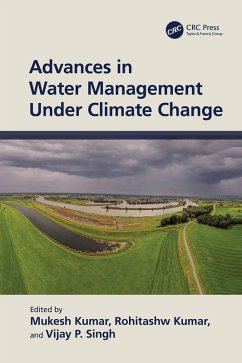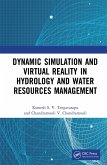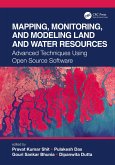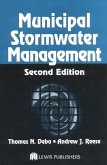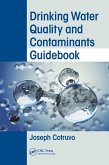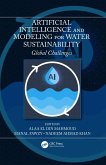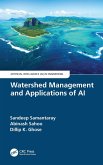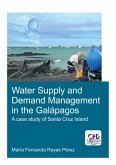Advances in Water Management Under Climate Change (eBook, PDF)
Redaktion: Kumar, Mukesh; Singh, Vijay P.; Kumar, Rohitashw
105,95 €
105,95 €
inkl. MwSt.
Sofort per Download lieferbar

53 °P sammeln
105,95 €
Als Download kaufen

105,95 €
inkl. MwSt.
Sofort per Download lieferbar

53 °P sammeln
Jetzt verschenken
Alle Infos zum eBook verschenken
105,95 €
inkl. MwSt.
Sofort per Download lieferbar
Alle Infos zum eBook verschenken

53 °P sammeln
Advances in Water Management Under Climate Change (eBook, PDF)
Redaktion: Kumar, Mukesh; Singh, Vijay P.; Kumar, Rohitashw
- Format: PDF
- Merkliste
- Auf die Merkliste
- Bewerten Bewerten
- Teilen
- Produkt teilen
- Produkterinnerung
- Produkterinnerung

Bitte loggen Sie sich zunächst in Ihr Kundenkonto ein oder registrieren Sie sich bei
bücher.de, um das eBook-Abo tolino select nutzen zu können.
Hier können Sie sich einloggen
Hier können Sie sich einloggen
Sie sind bereits eingeloggt. Klicken Sie auf 2. tolino select Abo, um fortzufahren.

Bitte loggen Sie sich zunächst in Ihr Kundenkonto ein oder registrieren Sie sich bei bücher.de, um das eBook-Abo tolino select nutzen zu können.
Climate change is occurring across the world. Due to increasing population, decreased cultivable land, and mounting scarcity of water, it is essential to optimize the use of available resources. Advances in Water Management Under Climate Change examines these issues and provides best practices for sustainability.
- Geräte: PC
- mit Kopierschutz
- eBook Hilfe
Andere Kunden interessierten sich auch für
![Dynamic Simulation and Virtual Reality in Hydrology and Water Resources Management (eBook, PDF) Dynamic Simulation and Virtual Reality in Hydrology and Water Resources Management (eBook, PDF)]() Ramesh S. V. TeegavarapuDynamic Simulation and Virtual Reality in Hydrology and Water Resources Management (eBook, PDF)50,95 €
Ramesh S. V. TeegavarapuDynamic Simulation and Virtual Reality in Hydrology and Water Resources Management (eBook, PDF)50,95 €![Mapping, Monitoring, and Modeling Land and Water Resources (eBook, PDF) Mapping, Monitoring, and Modeling Land and Water Resources (eBook, PDF)]() Mapping, Monitoring, and Modeling Land and Water Resources (eBook, PDF)48,95 €
Mapping, Monitoring, and Modeling Land and Water Resources (eBook, PDF)48,95 €![Municipal Stormwater Management (eBook, PDF) Municipal Stormwater Management (eBook, PDF)]() Thomas N. DeboMunicipal Stormwater Management (eBook, PDF)303,95 €
Thomas N. DeboMunicipal Stormwater Management (eBook, PDF)303,95 €![Drinking Water Quality and Contaminants Guidebook (eBook, PDF) Drinking Water Quality and Contaminants Guidebook (eBook, PDF)]() Joseph CotruvoDrinking Water Quality and Contaminants Guidebook (eBook, PDF)121,95 €
Joseph CotruvoDrinking Water Quality and Contaminants Guidebook (eBook, PDF)121,95 €![Artificial Intelligence and Modeling for Water Sustainability (eBook, PDF) Artificial Intelligence and Modeling for Water Sustainability (eBook, PDF)]() Artificial Intelligence and Modeling for Water Sustainability (eBook, PDF)49,95 €
Artificial Intelligence and Modeling for Water Sustainability (eBook, PDF)49,95 €![Watershed Management and Applications of AI (eBook, PDF) Watershed Management and Applications of AI (eBook, PDF)]() Sandeep SamantarayWatershed Management and Applications of AI (eBook, PDF)48,95 €
Sandeep SamantarayWatershed Management and Applications of AI (eBook, PDF)48,95 €![Water Supply and Demand Management in the Galápagos (eBook, PDF) Water Supply and Demand Management in the Galápagos (eBook, PDF)]() Maria Reyes PerezWater Supply and Demand Management in the Galápagos (eBook, PDF)68,95 €
Maria Reyes PerezWater Supply and Demand Management in the Galápagos (eBook, PDF)68,95 €-
-
-
Climate change is occurring across the world. Due to increasing population, decreased cultivable land, and mounting scarcity of water, it is essential to optimize the use of available resources. Advances in Water Management Under Climate Change examines these issues and provides best practices for sustainability.
Dieser Download kann aus rechtlichen Gründen nur mit Rechnungsadresse in A, B, BG, CY, CZ, D, DK, EW, E, FIN, F, GR, HR, H, IRL, I, LT, L, LR, M, NL, PL, P, R, S, SLO, SK ausgeliefert werden.
Produktdetails
- Produktdetails
- Verlag: Taylor & Francis eBooks
- Seitenzahl: 372
- Erscheinungstermin: 30. November 2023
- Englisch
- ISBN-13: 9781000992557
- Artikelnr.: 69137346
- Verlag: Taylor & Francis eBooks
- Seitenzahl: 372
- Erscheinungstermin: 30. November 2023
- Englisch
- ISBN-13: 9781000992557
- Artikelnr.: 69137346
- Herstellerkennzeichnung Die Herstellerinformationen sind derzeit nicht verfügbar.
Dr. Mukesh Kumar has graduated in Agricultural Engineering with a Masters in Soil and Water Engineering from Punjab Agricultural University Ludhiana. He received his Ph.D. in Agricultural Engineering with the specialization in Soil and Water Conservation Engineering from Indian Agricultural Research Institute. Dr. Kumar has been working as Assistant Professor in School of Agriculture, Indira Gandhi National Open University, New Delhi, since 2006. He has associated in several research projects funded by the ICAR, different Ministries. He has published more than 40 research papers in peer reviewed journals and participated in 32 national and international conferences. He has also contributed to more than 22 book chapters and published two extension manuals. He has organized a number of national and international conferences as the organizing secretary, or a member of the organizing committee. He has developed number of educational programmes in the field of water management and watershed management at a national level. He is a life member of professional societies such as the Indian Society of Soil and Water Conservation, New Delhi; the Indian Society Agricultural Engineering, New Delhi; and the Indian Association of Hydrologists, Roorkee, Uttrakhand, India. He is involved as joint secretary and treasurer in the Indian Society of Soil and Water Conservation, New Delhi. He has received a Ph.D. Student Incentive Award (2012), Gold Medal (2014), Special Research Award (2016) and National Fellow (2019) from the Soil Conservation Society of India. The Fertilizer Association of India has awarded him with the Golden Jubilee Award for Doctoral Research in Fertilizer Uses in 2013 for outstanding research work on the dynamics of nutrient movements in soil under fertigation during Ph.D. He was also honored with the University Silver Medal (2015) by the Indira Gandhi National Open University, New Delhi, India. Dr. Rohitashw Kumar (B.E., M.E., Ph.D.) is Associate Dean and Professor at the College of Agricultural Engineering and Technology, Sher-e-Kashmir University of Agricultural Sciences and Technology of Kashmir, Srinagar, India. He is also Professor Water Chair (Sheikkul Alam Shiekh Nuruddin Water Chair), Ministry of Jal Shakti, Government of India, at the National Institute of Technology, Srinagar (J&K). He is also Professor and Head, Division of Irrigation and Drainage Engineering. He obtained his Ph.D. degree in Water Resources Engineering from NIT, Hamirpur, and Master of Engineering Degree in Irrigation Water Management Engineering from MPUAT, Udaipur. He received a leadership award in 2020, special research award in 2017 and a Student Incentive Award (2015) (Ph.D. Research) from the Soil Conservation Society of India, New Delhi. He also got the first prize in India for best M.Tech thesis in Agricultural Engineering in 2001. He has published over 100 papers in peer-reviewed journals, more than 25 popular articles, four books, two practical manuals, and 25 book chapters. He has guided one Ph.D. and 14 M.Tech. students in soil and water engineering. He has handled more than 12 research projects as a principal or co-principal investigator and since 2011 he has been Principal Investigator of ICAR - All India Coordinated Research Project on Plastic Engineering in Agriculture Structural and Environment Management. Professor Vijay P. Singh is a Distinguished Professor, a Regents Professor, and the inaugural holder of the Caroline and William N. Lehrer Distinguished Chair in Water Engineering at the Texas A&M University. His research interests include surface-water hydrology, groundwater hydrology, hydraulics, irrigation engineering, environmental quality, water resources, water-food-energy nexus, climate change impacts. entropy theory, copula theory, and mathematical modeling. He graduated with a B.Sc. in Engineering and Technology with emphasis on Soil and Water Conservation Engineering in 1967 from the U.P. Agricultural University, India. He earned an M.S. in Engineering with specialization in Hydrology in 1970 from the University of Guelph, Canada; a Ph.D. in Civil Engineering with specialization in Hydrology and Water Resources in 1974 from the Colorado State University, Fort Collins, USA, and a D.Sc. in Environmental and Water Resources Engineering in 1998 from the University of the Witwatersrand, Johannesburg, South Africa. He has published extensively on a wide range of topics. His publications include more than 1,365 journal articles, 32 books, 80 edited books, 305 book chapters, and 315 conference proceedings papers. For his seminar contributions he has received more than 100 national and international awards, including three honorary doctorates. Currently he serves as Past President of the American Academy of Water Resources Engineers, the American Society of Civil Engineers (ASCE), and previously he served as President of the American Institute of Hydrology and Cahir, Watershed Council, ASCE. He is Editor-in-Chief of two book series, three journals, and serves on the editorial boards of more than 25 journals. He has served as Editor-in-Chief of three other journals. He is a Distinguished Member of the American Society of Civil Engineers, an Honorary Member of the American Water Resources Association, an Honorary Member of International Water Resource Association, and a Distinguished Fellow of the Association of Global Groundwater Scientists. He is a fellow of five professional societies. He is also a fellow or member of 11 national or international engineering or science academies.
1. Water Resource Management - An Approach to Sustainable Water Management.
2. Water Management: Issues and Challenges. 3. Soil and Water Conservation
Concept: A Forward Step to Manage Groundwater Depletion and Greenhouse Gas
Emission. 4. Managing Groundwater Resources and Its Quality for Sustainable
Development of Agriculture. 5. Climate Resilient Agriculture System - An
Approach to Integrated Farming System (IFS). 6. Climate Resilient
Agriculture for Sustainable Livelihoods and Food Security. 7. Climate
Resilient Agriculture to Double the Farmer's Income - A Case Study of
Chamba (HP). 8. Integrated Farming System: A Dynamic Approach Towards
Increasing the Income of Small and Marginal Farmers. 9. Comparison and
Estimation Soil Wetting Patterns Models and Soil Moisture Dynamics Under
Point Source. 10. IOT and Sensor Based Water and Nutrient Management for
Protected Cultivation Technology. 11. Soil Carbon Sequestration through
Conservation Agriculture Under Changing Climate. 12. Water Productivity of
Temperate Fruits in Climate Change Scenario. 13. Livestock in Sustainable
Watershed Management. 14. Artificial Intelligence application in Water
Resource Management. 15. Evapotranspiration in Context of Climate Change.
16. Micro-Irrigation - Potential and Opportunities in Hilly and Sloppy
Areas for Doubling Farmer Income. 17. Increase Water Use Efficiency Through
Micro-Irrigation. 18. Groundwater Conservation and Management by Artificial
Recharge of Aquifer.
2. Water Management: Issues and Challenges. 3. Soil and Water Conservation
Concept: A Forward Step to Manage Groundwater Depletion and Greenhouse Gas
Emission. 4. Managing Groundwater Resources and Its Quality for Sustainable
Development of Agriculture. 5. Climate Resilient Agriculture System - An
Approach to Integrated Farming System (IFS). 6. Climate Resilient
Agriculture for Sustainable Livelihoods and Food Security. 7. Climate
Resilient Agriculture to Double the Farmer's Income - A Case Study of
Chamba (HP). 8. Integrated Farming System: A Dynamic Approach Towards
Increasing the Income of Small and Marginal Farmers. 9. Comparison and
Estimation Soil Wetting Patterns Models and Soil Moisture Dynamics Under
Point Source. 10. IOT and Sensor Based Water and Nutrient Management for
Protected Cultivation Technology. 11. Soil Carbon Sequestration through
Conservation Agriculture Under Changing Climate. 12. Water Productivity of
Temperate Fruits in Climate Change Scenario. 13. Livestock in Sustainable
Watershed Management. 14. Artificial Intelligence application in Water
Resource Management. 15. Evapotranspiration in Context of Climate Change.
16. Micro-Irrigation - Potential and Opportunities in Hilly and Sloppy
Areas for Doubling Farmer Income. 17. Increase Water Use Efficiency Through
Micro-Irrigation. 18. Groundwater Conservation and Management by Artificial
Recharge of Aquifer.
1. Water Resource Management - An Approach to Sustainable Water Management.
2. Water Management: Issues and Challenges. 3. Soil and Water Conservation
Concept: A Forward Step to Manage Groundwater Depletion and Greenhouse Gas
Emission. 4. Managing Groundwater Resources and Its Quality for Sustainable
Development of Agriculture. 5. Climate Resilient Agriculture System - An
Approach to Integrated Farming System (IFS). 6. Climate Resilient
Agriculture for Sustainable Livelihoods and Food Security. 7. Climate
Resilient Agriculture to Double the Farmer's Income - A Case Study of
Chamba (HP). 8. Integrated Farming System: A Dynamic Approach Towards
Increasing the Income of Small and Marginal Farmers. 9. Comparison and
Estimation Soil Wetting Patterns Models and Soil Moisture Dynamics Under
Point Source. 10. IOT and Sensor Based Water and Nutrient Management for
Protected Cultivation Technology. 11. Soil Carbon Sequestration through
Conservation Agriculture Under Changing Climate. 12. Water Productivity of
Temperate Fruits in Climate Change Scenario. 13. Livestock in Sustainable
Watershed Management. 14. Artificial Intelligence application in Water
Resource Management. 15. Evapotranspiration in Context of Climate Change.
16. Micro-Irrigation - Potential and Opportunities in Hilly and Sloppy
Areas for Doubling Farmer Income. 17. Increase Water Use Efficiency Through
Micro-Irrigation. 18. Groundwater Conservation and Management by Artificial
Recharge of Aquifer.
2. Water Management: Issues and Challenges. 3. Soil and Water Conservation
Concept: A Forward Step to Manage Groundwater Depletion and Greenhouse Gas
Emission. 4. Managing Groundwater Resources and Its Quality for Sustainable
Development of Agriculture. 5. Climate Resilient Agriculture System - An
Approach to Integrated Farming System (IFS). 6. Climate Resilient
Agriculture for Sustainable Livelihoods and Food Security. 7. Climate
Resilient Agriculture to Double the Farmer's Income - A Case Study of
Chamba (HP). 8. Integrated Farming System: A Dynamic Approach Towards
Increasing the Income of Small and Marginal Farmers. 9. Comparison and
Estimation Soil Wetting Patterns Models and Soil Moisture Dynamics Under
Point Source. 10. IOT and Sensor Based Water and Nutrient Management for
Protected Cultivation Technology. 11. Soil Carbon Sequestration through
Conservation Agriculture Under Changing Climate. 12. Water Productivity of
Temperate Fruits in Climate Change Scenario. 13. Livestock in Sustainable
Watershed Management. 14. Artificial Intelligence application in Water
Resource Management. 15. Evapotranspiration in Context of Climate Change.
16. Micro-Irrigation - Potential and Opportunities in Hilly and Sloppy
Areas for Doubling Farmer Income. 17. Increase Water Use Efficiency Through
Micro-Irrigation. 18. Groundwater Conservation and Management by Artificial
Recharge of Aquifer.
